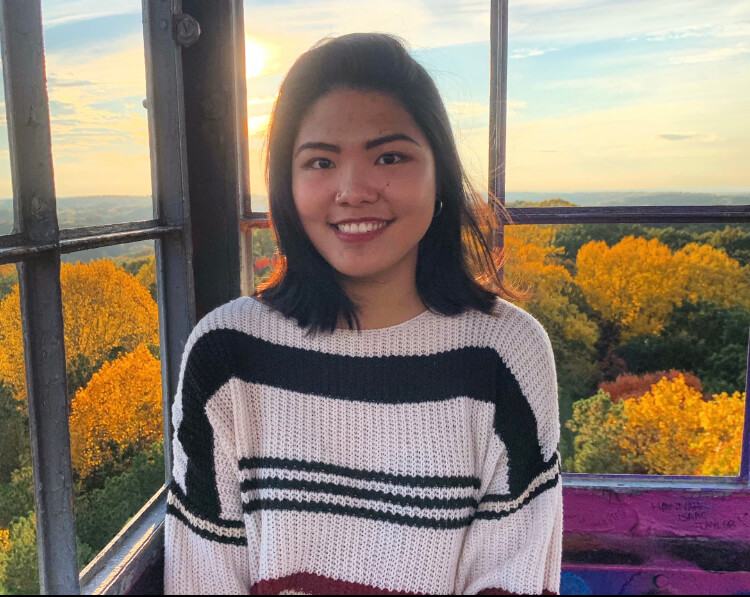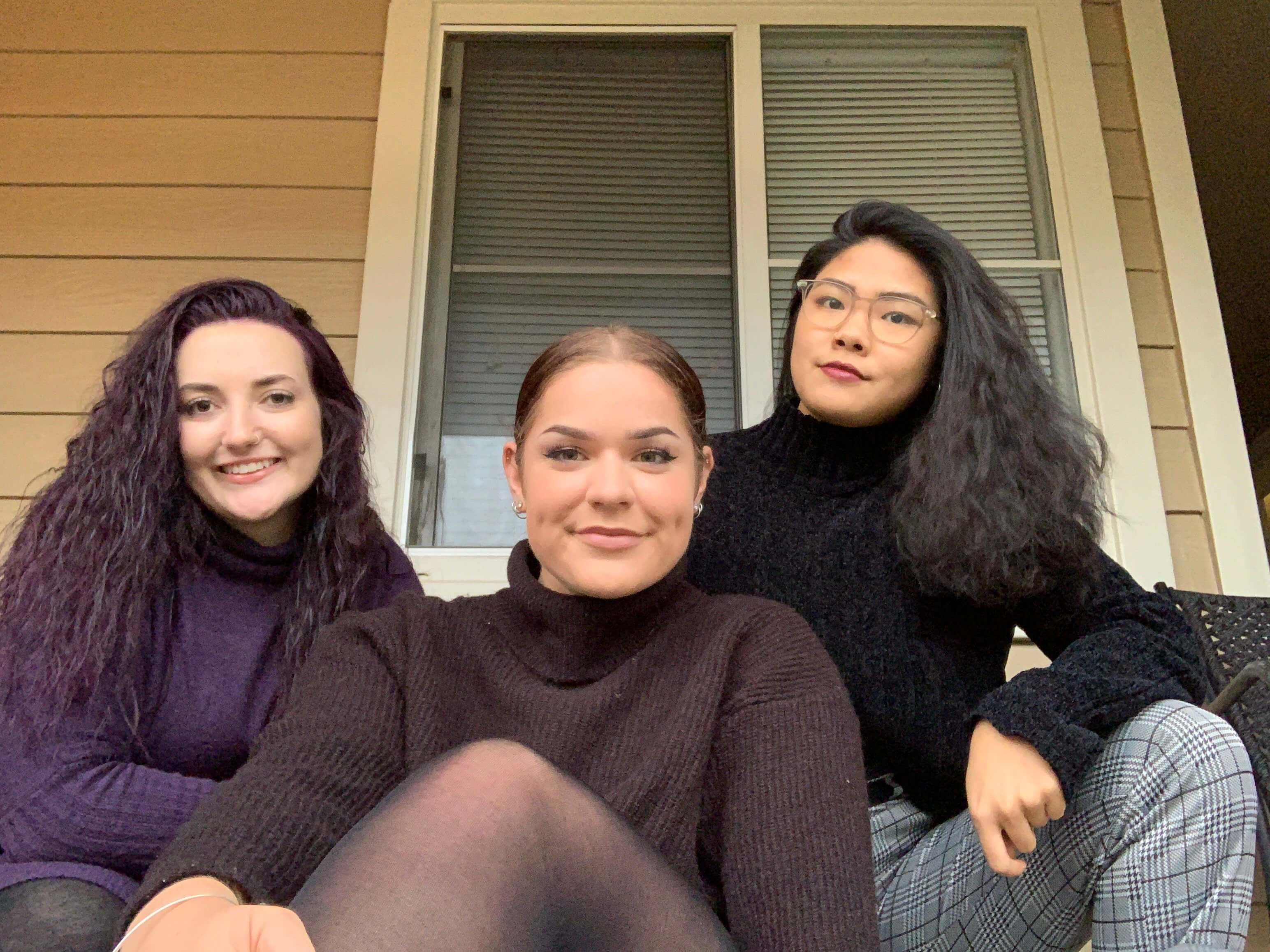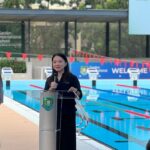
Jaynie Cheng is a third-year graduate student at Indiana University Bloomington. For the Taiwanese, nothing sparks a fire in her more than languages and culture — it was fitting then that her major is in Chinese pedagogy. She researches multiliteracies, student motivation and engagement and instructed second language acquisition.
What she enjoys more — and what pays for tuition and a stipend — is teaching English and Chinese. Her classes equip students with “essential skills and knowledge to navigate themselves in new situations, bring effective communication skills and gain international exposure.”
A firm believer in empathy, Cheng starts her day by affirming what’s on a sticky note on her mirror saying “make your students feel great today.” A longer-term plan is still in the making — she hasn’t decided if she’ll head back to Taiwan, but she knows she wants to continue working with and for international students.
“I’ve been actively meeting people in education, edtech, business and tech via LinkedIn. In Taiwan, there isn’t a big culture of making use of this platform to network,” she says. “Being here in the US has really opened my eyes.”
Below we speak to her about her experience at Indiana University Bloomington and the differences between Taiwan and the US:
Tell us about language development, Chinese pedagogy and what made you choose to study at Indiana University Bloomington in the US.
My interest in language development began with English pedagogy. I started teaching English when I was 17 to earn extra cash but I then realised I enjoyed being able to create a close relationship while tutoring.

Much like many other international students, Cheng hasn’t figured out a 10-year plan or if she’ll head back to Taiwan. Source: Jaynie Cheng
I was able to create a curriculum that revolves around students’ interests, learning needs and learning styles. This experience prompted me to major in English with a teaching focus in college.
I then thought I speak Chinese too so why not get the skills to teach both languages? So, in addition to my major, I completed a certificate in teaching Chinese as a second language.
After I graduated from uni in Taiwan, I took some time off work to figure out what I wanted to do with my career. At the same time, I wanted to study abroad but I didn’t have the financial means.
It was then I came across ALLEX foundation whose mission is to recruit Japanese, Chinese and Taiwanese people to go to the US through pursuing a degree and teaching at the same time.
I then applied with a couple of majors and got matched to Indiana University Bloomington. This is how I ended up completing my master’s in Chinese pedagogy there and teaching as well.
The experience reminded me a lot about teaching English because I get to form close bonds with my students, see their progress, see them studying abroad in Taiwan and China.
Do you think it would have made a difference if you stayed in Taiwan to study?
Some of the main differences between the US and Taiwan are teaching and networking. At Indian University, Bloomington teaching is a big part of my responsibility as it pays my tuition and gives me a stipend.
So, as I’m pursuing my master’s, I’ve also accumulated more than two years of work experience. I’m not quite sure how this would work back home in Taiwan but I don’t think there would be such an opportunity for graduate students.

“Some of the main differences between the US and Taiwan are teaching and networking. At Indian University Bloomington, teaching is a big part of my responsibility as it pays my tuition and gives me a stipend,” she says. Source: Jaynie Cheng
Then, there are networking opportunities. Since July, I’ve been actively meeting people in education, edtech, business and tech via LinkedIn. In Taiwan, there isn’t a big culture of making use of this platform to network.
Being here in the US has really opened my eyes.
Do you have any fond memories of teachers at Indiana University Bloomington?
I really enjoyed working with one of my lecturers during the summer of 2020 in the pandemic. It was especially challenging because we had to take in more students since they couldn’t go abroad and everything was online.
Moreover, we were also building lesson plans with new materials. However, this particular lecturer really motivated me to work for him because he brought an amazing energy to the daily meetings.
He was just a very pleasant person to work with and I’m really grateful to have him as a supervisor. It made me realise the qualities I look for in a leader.
Do you plan to further your studies?
At the moment, I don’t plan to progress into further studies such as a PhD because I realised that I enjoy hands-on work compared to research. Essentially, I would like to gain practical skills and experience.
As I’m graduating soon, I’ve been considering a few industries. One of them is international education because I would like to help and advocate for this community.
Another is edtech because I would like to do the same for teachers. However, I’m also open to other things like business or tech as long as it aligns with my values of building bridges across languages, cultures, and helping people create better lives and learning experiences.

“Since July, I’ve been actively meeting people in education, edtech, business and tech via LinkedIn. In Taiwan, there isn’t a big culture of making use of this platform to network,” she tells Study International. Source: Jaynie Cheng
What about your teaching experience? Walk us through how you help people gain international exposure in closing the language gap.
Confidence is important in stepping out of one’s comfort zone and building the bridge to a different culture. But, I believe elevating and refining one’s language skills is the first step to take.
Since I’ve been teaching English and Chinese, my students have developed a desire to visit the country of the target language. Learning the language allows them to understand more of the native ideology and culture.
So, as a language educator, my mission is to equip my students with essential skills and knowledge to navigate themselves in new situations, bring effective communication skills and gain international exposure.
Do you face any challenges as an international student in the US?
There are many challenges for international students before, during and after studying abroad. Getting admitted and preparing materials for foreign education isn’t easy. Having to find a balance between taking care of yourself, excelling in academics and having fun can be overwhelming.
Navigating a new job market and networking is one of the most challenging things to overcome after graduating. Especially in the US, as international students (like myself) are given a limited amount of time to work and find sponsorship.
As a non-STEM major, that’s more difficult and an obstacle I’ve yet to overcome. Having said all of this, I enjoy being an international student as I get to put my skills to practice and push my own limits.










